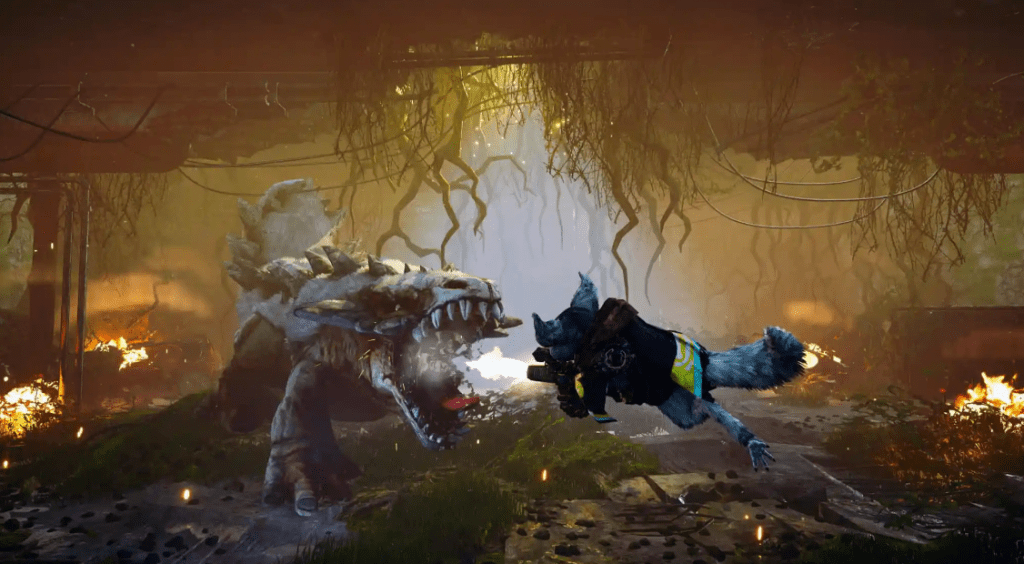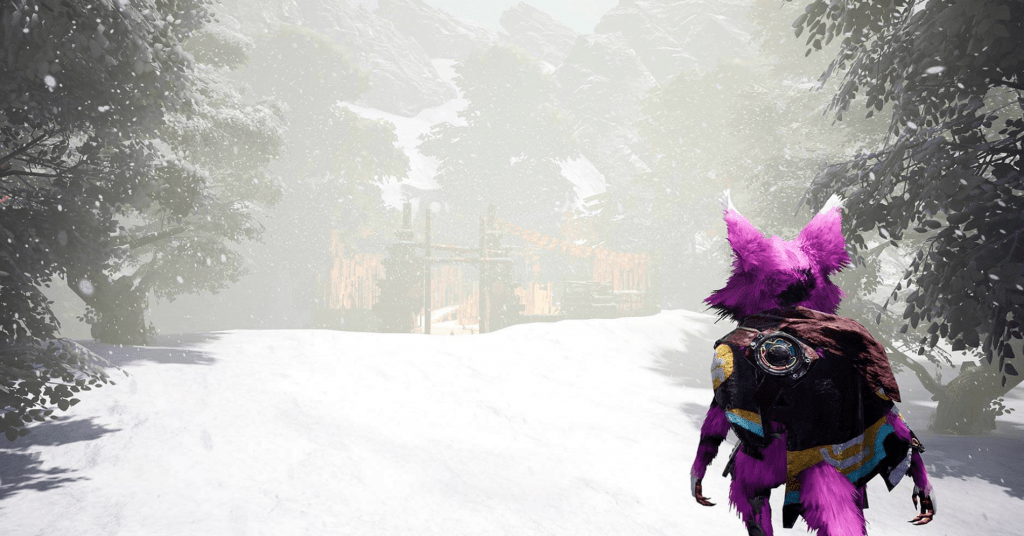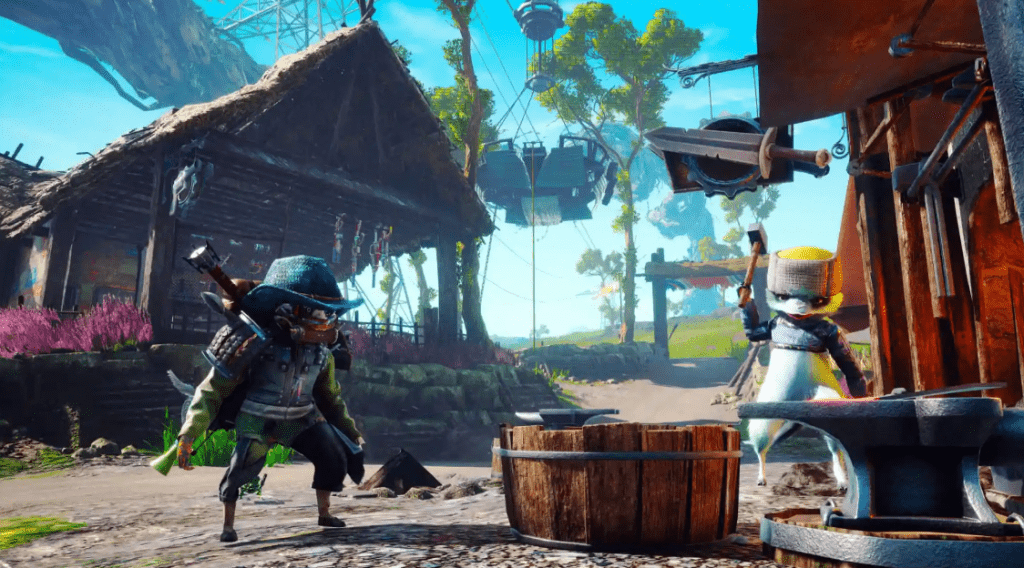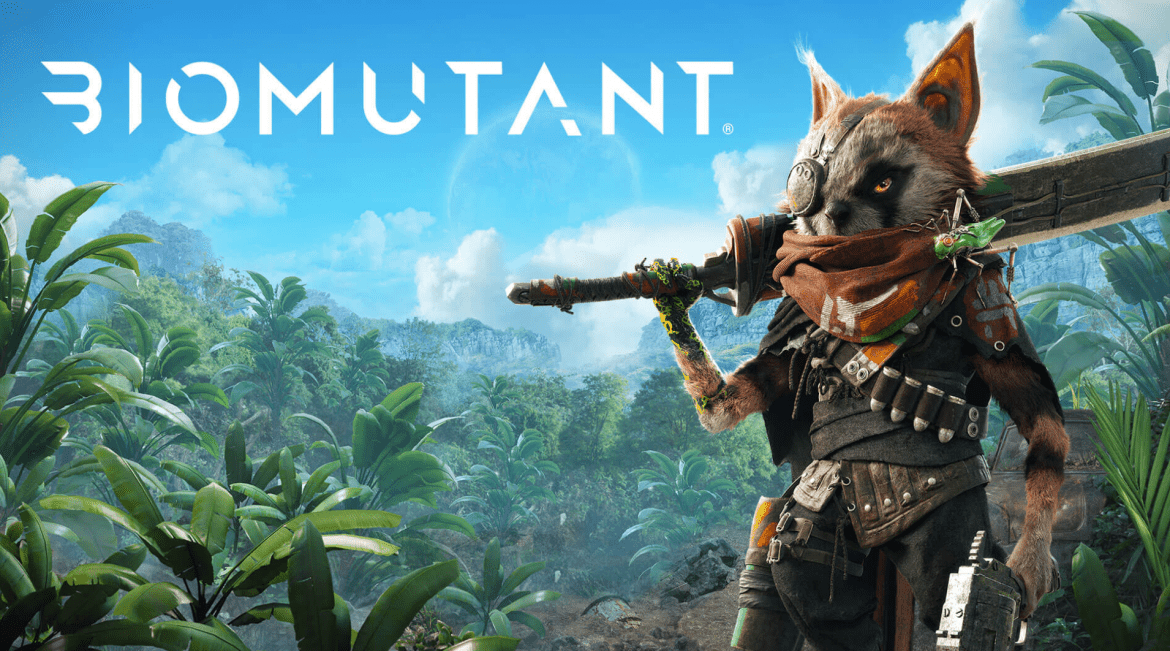As the calendar pages turned to reveal another month in the year 2021, the gaming community found itself adding yet another letdown to its list.
“Biomutant,” a title that had been brewing and teasing for years, had nestled itself on my Steam wishlist so inconspicuously that I couldn’t even recall when I first added it. Emerging onto the scene before the infamous “Cyberpunk 2077,” it sought to avoid the pitfalls of its predecessor and, to its credit, offered playability on both Xbox One and PS4.
The most glaring shortcoming of “Biomutant” unveils itself in the realm of dialogue and narrative delivery. The tale commences with your diminutive mutated fox creature returning to its place of origin.
A persistent narrator unfolds the narrative of an ecological calamity, leaving the life-sustaining trees of the world teetering on the edge of demise.

The protagonist embarks on a journey to save the world and avenge their parents. Yet, this journey is not illustrated through poignant scenes; instead, a narrator bombards players with a cacophony of nonsensical ramblings, bizarre metaphors, and philosophical musings. The developers seemed to have taken the adage “show, don’t tell” and executed the exact opposite.
Players aren’t allowed to mourn the demise of their character’s parents; they’re told, “You feel immense sorrow.” The game fails to depict a dying world; it looks healthy and vibrant. Nevertheless, every few steps, the narrator insists that it’s dying, and only the player can rescue it.
Despite the narrator’s assertions of contamination and scarce animal life, the visuals don’t align. While many video games grapple with storytelling issues, “Biomutant” amplifies the problem to an unbearable extent.
In the realm of gameplay, where satisfying mechanics and character building often salvage RPGs, “Biomutant” finds itself faltering on both fronts. Traversing the world offers a semblance of swiftness and fluidity. Jumping and double-jumping exhibit a commendable responsiveness. However, these are the sole highlights in the gameplay department.
Melee combat and aiming prove to be highly inconsistent. The absence of a lock-on feature forces your character to automatically target the nearest enemy, creating a challenge in hitting your desired mark.

Occasionally, enemies can be locked within a specific range, while at other times, they effortlessly evade your attacks and send you sprawling. Attacks from smaller foes are elusive, too rapid for evasion or blocking.
Meanwhile, larger adversaries resort to the same repetitive moves when at a distance. The seemingly optimal strategy becomes a continuous reliance on ranged weapons, engaging in a dance of kiting, especially with the luxury of infinite ammo. Most enemies mindlessly trail behind you, ineffectual unless they happen to be armed. Opting for ranged combat seems a far more sensible choice than risking instant obliteration in melee range. In essence, the combat system feels cumbersome and imprecise.
The RPG facet of “Biomutant” mirrors the lackluster performance in other areas. Multiple skill categories beckon players to choose, yet within the initial two hours, most are nearly unlocked.

The dearth of consequential choices results in a paucity of diversity in character builds. Though your character boasts various statistics to invest in during upgrades, the deliberation of where to allocate points lacks significance. As an avid fan of theoretical modeling and character planning in RPGs, I found this aspect sorely lacking in “Biomutant.”
The game harbors numerous drawbacks, pointing to the developers attempting to amalgamate too many good ideas, ultimately resulting in a product that lacks focus and feels inadequately realized.
While some players might choose to overlook the shortcomings in combat and storytelling, finding solace in the enjoyment of exploring the expansive world for a limited period, the price tag proves to be a formidable barrier.
A $60 price point for a game that resonates more with an early access indie title feels exorbitant and difficult to endorse at launch.



Leave a Reply